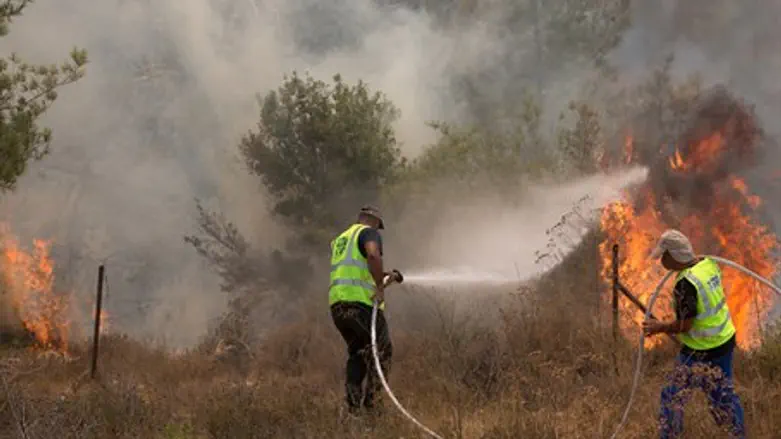
Despite the wave of forest fires which still appears every summer, the overall fire safety situation in Israel has improved drastically, Dr. Shai Levy, an expert at University of Haifa on the prevention of forest and woodland fires, stated in a special Arutz Sheva interview on Tuesday.
The 2010 Carmel forest fire catalyzed a change in Israel's approach to fire, Levy said. Noticeable changes include a larger role of the Israel Nature and Parks Authority and the Jewish National Fund (JNF) in containing and preventing fires - and sending out ground staff, as the JNF did on Sunday with the massive brushfire by Even Sapir.
However, there is still room for improvement.
"The weakest link is the communities and local councils, who still haven't internalized some things to their fullest," Levy noted. "It has long been understood that for a fire to break out, there are usually two factors involved: a human factor, and fuel [or tinder - ed.]."
"We can reduce the fuel or tinder, especially at roadsides and near communities, to reduce the damage caused to the fire," he said.
Dr. Levy agrees with the statement that was published recently declaring that pine trees are more flammable than others, "but proper treatment will reduce their flammability," he noted. "If you cut the lower branches you reduce the risk of fire - but not only for pines, also for oaks and other trees."
For a natural trim, he suggested communities allow cows and goats to graze closer to communities on the edge of the forest.
"For a fire to burn all the way to the tops of trees, it needs to start somewhere," he said. "Once we separate that connection between the tinder on the ground and the forest, we reduce the chances of a brushfire reaching treetops - and save human lives."
Ordinary citizens also need to be careful when doing construction, he said. Sunday's fire ignited several homes in Even Sapir which were constructed from wood - or which had piles of scrap wood close to the forest edge left over from previous projects.
He also emphasized the importance of educating the public about fire safety, noting that initial investigations blame human error - or outright arson - for the fire.
He added that Israeli law allows imprisonment of three years for arson by negligence and up to 20 years in prison for deliberate arson - but the State of Israel rarely enforces this.